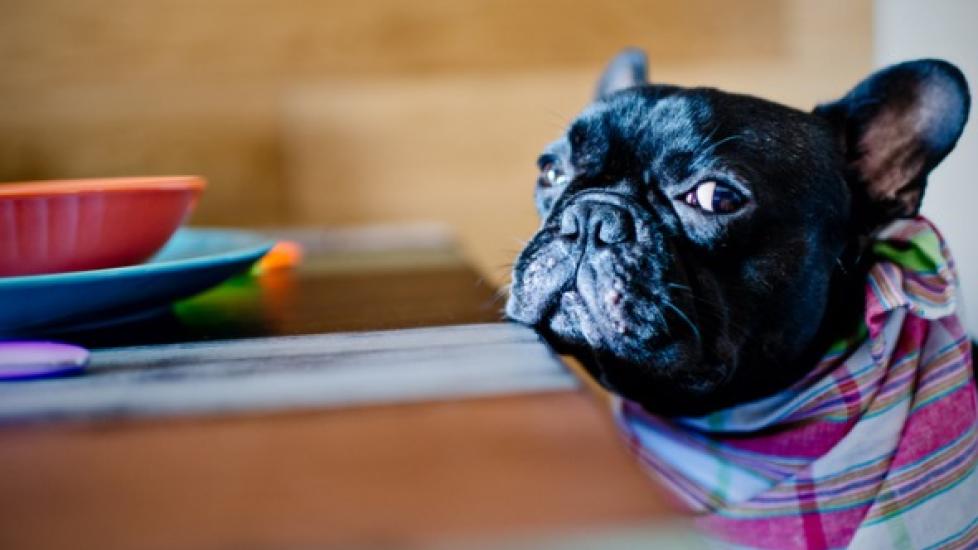What Is Insect-Based Pet Food?
Dogs and cats eat bugs all the time, either by accident or when their hunting instincts kick in. But intentionally including insects in a pet’s diet—that’s a whole other hornet’s nest, so to speak.
Insects are not currently a permitted ingredient in commercial pet foods in the US. However, insect-based pet foods are making their way into the market in the UK, Germany, France and Italy.
Depending on their success, this could be the beginning of a new way of feeding our pets.
Insects as the Protein Source in Pet Food
It’s not a new concept for animals (or humans) to eat insects. In some areas of the world, certain insects are considered a delicacy. However, that’s not really the case in the US, which is what makes this concept so foreign for many of us.
With insect-based pet food, the queasy factor is largely removed once the product has been made. Once manufactured, it looks just like the regular types of dog food, cat food, cat treats or dog treats.
Yora Pet Foods recently released a kibble made primarily of insect protein, oats, potatoes and vegetables. Their protein of choice is Hermetia illucens larvae, also known as the “black soldier fly.” Other potential insect protein sources include crickets and mealworms.
Why Would Pet Parents Choose Insect-Based Pet Foods?
So why would anyone want to try these foods? Here are three reasons why a pet parent might consider insect-based pet food as an option.
Environmental Sustainability
For the environmentally conscious pet parent, insect-based pet foods present an exciting prospect. Conventional factory farming requires huge quantities of energy, water and land. Additionally, there are serious concerns about the welfare of livestock and their pollutant effects.
Insect farming can be accomplished ethically, more efficiently and with fewer resources. It produces little methane and ammonia, and it does not require any hormones or antibiotics. The low environmental impact of insect-based pet foods is their most notable, potential advantage.
A Hypoallergenic Alternative
Dietary allergies and intolerances are problems among pets today. If your dog is triggered by typical meat sources, a vegetarian diet could be a potential solution.
Cats, however, cannot survive on vegetarian diets, so cats (and many dogs) rely on novel protein diets (venison or duck, for example) or foods made from hydrolyzed proteins.
There are many types of cat food and dog food currently available for pets who react to common allergens, but more options, like insect-based pet food, are always welcome.
More Than Just a Protein
In addition to being a good source of protein, insects also contain fat, fatty acids, minerals and vitamins. The quantity of these nutrients varies depending on the species of insect.
According to the Food and Agriculture Organization of the United Nations, the “nutritional value of insects does not differ from the nutritional value of other meat sources such as chicken, beef, pork and fish.”
Roadblocks to Insect-Based Pet Food
With the many promising characteristics of insect-based pet food, you may be wondering why it’s not available in the US. The reality is that there’s been very little research done on feeding insects to dogs and cats, meaning we have minimal data to support moving forward.
While it is safe for pets to eat many kinds of insects, it’s unclear what the long-term consequences of an insect-based diet would be. As encouraging as the nutritional content of insects appears, more research is required into nutrient digestibility, absorption and utilization.
For many people, the idea of eating insects is uncomfortable. Since we love our pets, that reluctance may be transferred to them. As it stands now, it’s unclear whether or not the public would sustain a real demand for insect-based pet food.
AAFCO/FDA Approval
Without thorough testing and stronger consumer pressure, it’s unlikely that the Association of American Feed Control Officials (AAFCO) or the Food and Drug Administration (FDA) will change current regulations on insects in pet food.
According to AAFCO, “All ingredients used in any pet food must be acceptable either via the AAFCO ingredients definition process, via formal FDA-CVM review or via Self-Affirmed GRAS [generally recognized as safe].”
As of today, only the black soldier fly larvae have been approved, and it’s been authorized exclusively for use in salmonid fish feed (AAFCO #T60.117).
Since pet treats are not considered to be a source of complete nutrition, they do not have to comply with all AAFCO regulations. As a result, you can currently purchase insect-based pet treats within the US.
However, if the insect-based pet foods available in other countries prove to be popular and healthy options, consumer interest could drive massive change in the US pet food industry.
By: Dr. Jennifer Coates
Featured Image: iStock.com/LaraBelova
